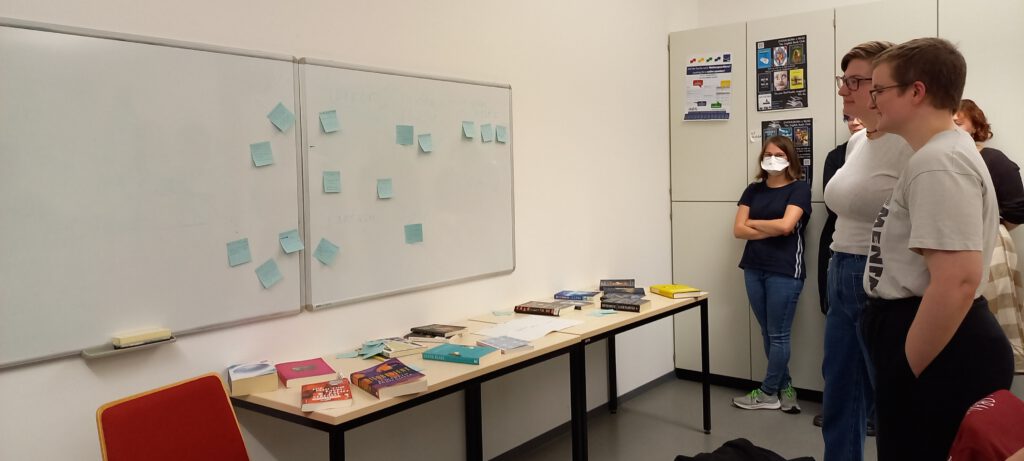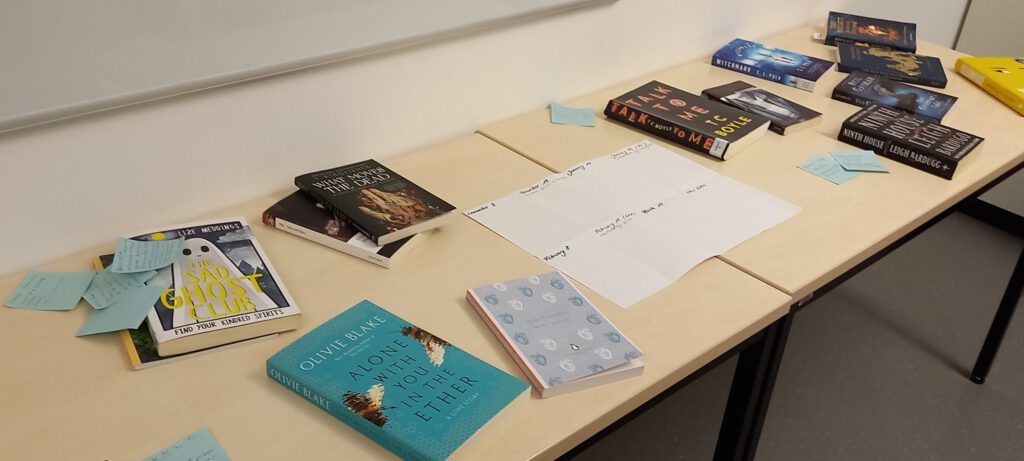What do you do when you have only five discussion slots to fill in a term but twenty-five book suggestions to fill them? Where do you lean when every single book pitch sounds intriguing? How do you cope when promising read after promising read has to be dropped?
Well, you talk it through. You make tough choices. You regret them later—or not.
Welcome to the madness of our book club’s planning sessions, where we try to come up with a good reading schedule but struggle with too many great choices.
We are sometimes asked whether we simply take a vote on each term’s suggestions. Obviously, that would be a quick and easy solution to having too many options for too few sessions. But we prefer to talk things through, to find proper arguments for and against certain choices and to see our options in relation to each other. Actually, taking a vote only comes in as a last resort, if all other endeavours to create a good reading schedule have failed.
What are those endeavours to create a schedule might be a follow-up question. There is no definitive answer to that as there is no clear path to a new reading schedule. Often, we start with some eliminations based purely on interest: if a few club members are sceptical about the same book, if their interest has not really been sparked, the book might get discarded quite soon. Usually, we follow up with some eliminations based on book similarities: if we have multiple suggestions from the same genre, for example, we might discuss only these suggestions for a while and figure out the most popular suggestion from this particular genre while discarding all other suggestions. Finally, we tend to look at the bigger picture: we try to find arguments for a good balance of choices, asking ourselves which books are compatible with each other, which books offer an interesting contrast and other questions like this. By this point, we typically still have twice as many book suggestions as discussion slots to fill and things become more difficult. Sometimes, we start thinking in terms of the specific sessions to fill, for example discussing which suggestions might work well in a Christmas session. Sometimes, we start fixing the first choices because we can no longer deny that we are too intrigued by a particular suggestion to still be able to drop it. And sometimes, we do take a necessary vote on particular choices for the same session or on left-over options for fewer left-over sessions.
So far, we have always managed to work out our reading schedule. But sometimes, we ourselves cannot really explain how we arrived at that point.



